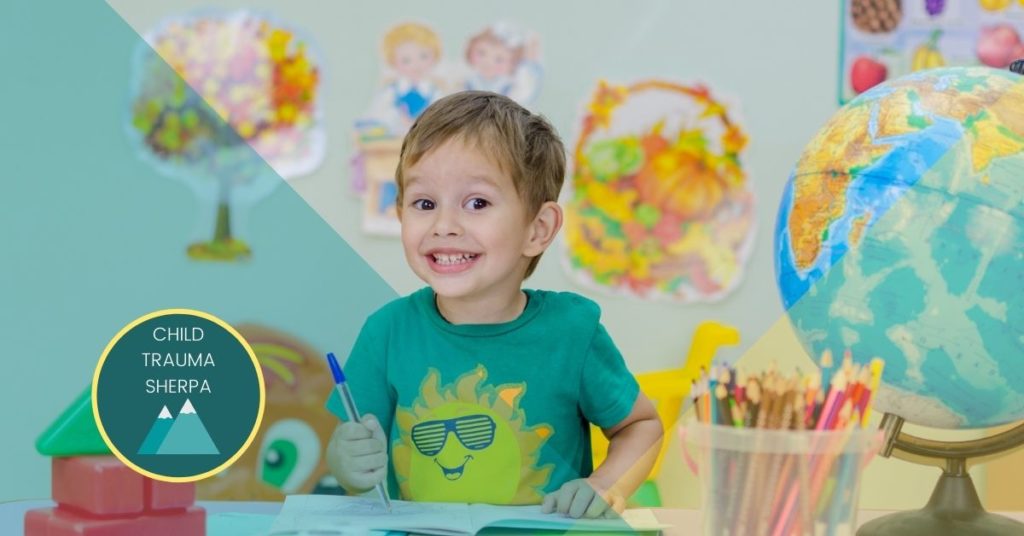The Link Between Childhood Trauma and Substance Abuse Plus Treatment for Both
Early childhood trauma can have wide-ranging effects on a person’s life, from physical health to mental and behavioral health. When not properly treated, a person who suffers from childhood trauma will often use coping mechanisms that can have very negative consequences.
One such coping mechanism is substance abuse and addiction.
What is Childhood Trauma?
Childhood trauma is an adverse event or events that a person experiences in their formative years. This can be abuse, neglect, household dysfunction and other environmental or community events that are negative in nature. These events are known as adverse childhood events, or ACE. The more ACEs a person experiences, the more negative consequences to their health and well-being they will experience.

The Link Between Childhood Trauma and Addiction
Research has found a link between substance abuse and childhood trauma. The more ACEs a person has experienced, the more likely they are to become addicted to a substance and the earlier that addiction will begin. Childhood trauma can also lead to a penchant for risky behaviors, such as substance abuse or even sexual promiscuity. Substance abuse is often used as an escape from the scars of childhood trauma, and abuse leads to addiction.
Healing Childhood Trauma and Treating Addiction
What makes childhood trauma so difficult to overcome is that it is an actual brain injury, but there is also hope in that too. The brain is resilient and it is constantly healing itself, but that means treatment for childhood trauma is needed alongside treatment for substance abuse. Otherwise, you are not treating the root problem. In other words, you need to take a holistic approach to treating childhood trauma and the symptoms of it.
Mental Health Treatment
Anxiety and depression as a result of childhood trauma can be one of the contributing factors leading to substance abuse. Those with childhood trauma want to escape their negative feelings through drug or alcohol abuse, rather than dealing with their emotions. As part of a holistic approach to treatment, there should be a focus on helping your child with trauma work through their emotional issues stemming from their trauma.
Therapy Specifically for Childhood Trauma
The mental health treatment should be a part of therapy specifically for childhood trauma. When you work with a trauma-informed therapist, your child should receive the holistic healing they need. Different types of therapy specifically for childhood trauma include:
- Cognitive Behavioral Therapy (CBT)
- Cognitive Processing Therapy (CPT)
- Trauma-Focused Cognitive Behavioral Therapy (TF-CBT)
- Eye Movement Desensitization and Reprocessing (EMDR)
- Narrative Exposure Therapy (NET)
- Prolonged Exposure Therapy (PE)
- Play Therapy
- Art Therapy
To learn more about these different types of therapies and which one might be right for your adopted child with trauma, check out this blog post.
Substance Abuse Treatment
Of course, if your child with trauma is experiencing substance abuse or addiction, you must also seek treatment for that as well. Addiction treatment will help a person stop using drugs, learn healthy coping mechanisms, and how to live a more fulfilling and productive life. Treatments include behavioral counseling, medication, medical devices used to treat withdrawal, evaluation for co-occurring mental health issues, and long-term follow-up.
Final Thoughts
As you can see, all of these different types of therapies have a lot of overlap both in symptoms and treatment due to the nature of the link between childhood trauma, mental health issues, and drug abuse. But know that there is hope! With trauma-informed care, your child can learn to overcome their past and lead productive lives with healthy relationships.
Healing will take time and plenty of patience and support. You’ll need to have a community of support from family to religious leaders to educators and therapists. But over time, the brain will heal and you will see remarkable improvement in your adopted child with trauma.

